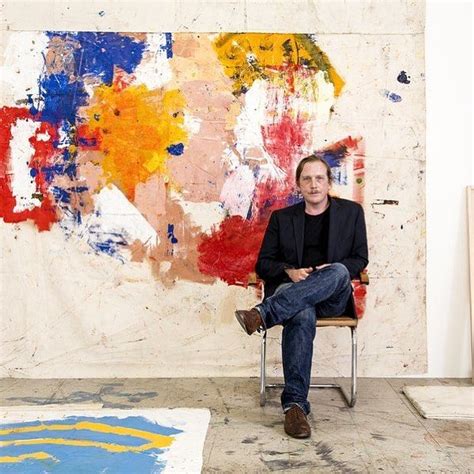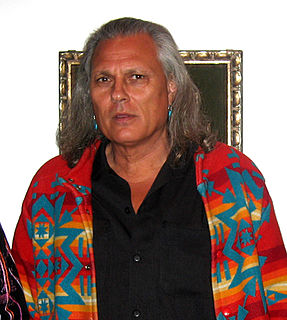A Quote by Joe Bradley
I think what's happened in art criticism, or art thinking, in last 30 or 40 years is a confusion between the "what" - the subject - and the "how." Most attention goes to the "what," but it's the "how" that's the important part - how something is brought into being.
Related Quotes
To spend any time with someone who is among the top five film composers of the last 50 years is pure gold dust. I mean, not necessarily stylistically, because everyone is different in what their music sounds like, but the approach and how to look at a film, how to think about a film, how to decide what you want to do, how to think about characters, how to think about art, how to think about narrative, how to liaise with producers, how to liaise with directors.
When anyone is creating anything, it has no choice but to be in that stream. The art I create and the art my colleagues create is part of it. But the question is: how long will it last in the stream? I think of it really as an enormous river, with its shores very distant from each other, and only time will tell what's going to last in the end. It seems to me that all music of our time is connected, but I never think about where I am in the river or how I would be placed by others inside of it.
The problem with kitsch is that it is all too profound, manipulating deep libidinal and ideological forces, while true art knows how to remain at the surface, how to subtract it's subject from it's deepest context of historical reality. The same goes for contemporary art, where we often encounter brutal attempts to return to the Real, to remind the spectator or reader that he is perceiving a fiction, to awaken him from a sweet dream.
I will do plays as long as they're interested in having me do them. It's the biggest opportunity to learn the most about how to act. Something I discover every time I'm doing one is how little I know about acting - how important the art of listening is, and how important it is to listen with your entire body. You can tell so much of a story with stillness, and a lot of that can be from really actively listening to your scene partner.
At one point cinema and photography weren't treated as art. Now it's crazy to think they're not. The key question is "What is art today?" The most important artists of the last 20 years are Steve Jobs and Jonathan Ive, because the influence they have had is incredible and they've changed the world. That is art.
I think my philosophy has evolved over the years. I started teaching almost 15 years ago and I've learned that how one student learns is obviously much different than how another student learns and so I've had to figure out how to get through to people honestly without hurting their feelings - which is no easy task just in the scope of being a human being, much less in the classroom, but which is something that is more important to me now than it was when I was 30 - and to show them a path to improving.
Not merely hope, but any burdensome yearning: ambition, hatred, love (especially love) - how rarely do our emotions meet the object they seem to deserve? How hopelessly we signal; how dark the sky; how big the waves. We are all lost at see, washed between hope and despair, hailing something that may never come to rescue us. Catastrophe has become art; but this is no reducing process. It is freeing, enlarging, explaining. Catastrophe has become art: that is, after all, what it is for.
From the very beginning, art meant something very important to the people who made it. It was a correspondence of the emotions to what you saw; it wasn't knowledge. You were being at one with something eternal; something outside of yourself. And no matter how many fake things have been brought in to suit other conditions... That is still true.
There is no separate art of life. If you know how to allow poetry, if you know how to allow dance, if you know how to allow love - if you know how to ALLOW, then you know the art of life. In the allowing, in the let-go, in the surrender, is the art of life. How not to be and to let God be - that is the only art of life.








































